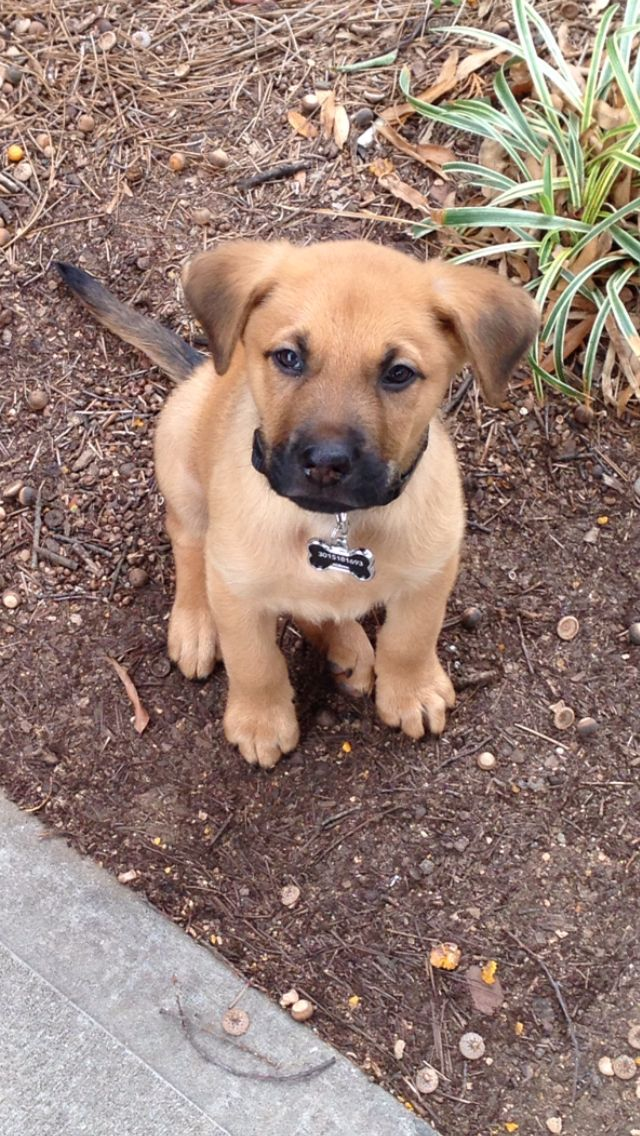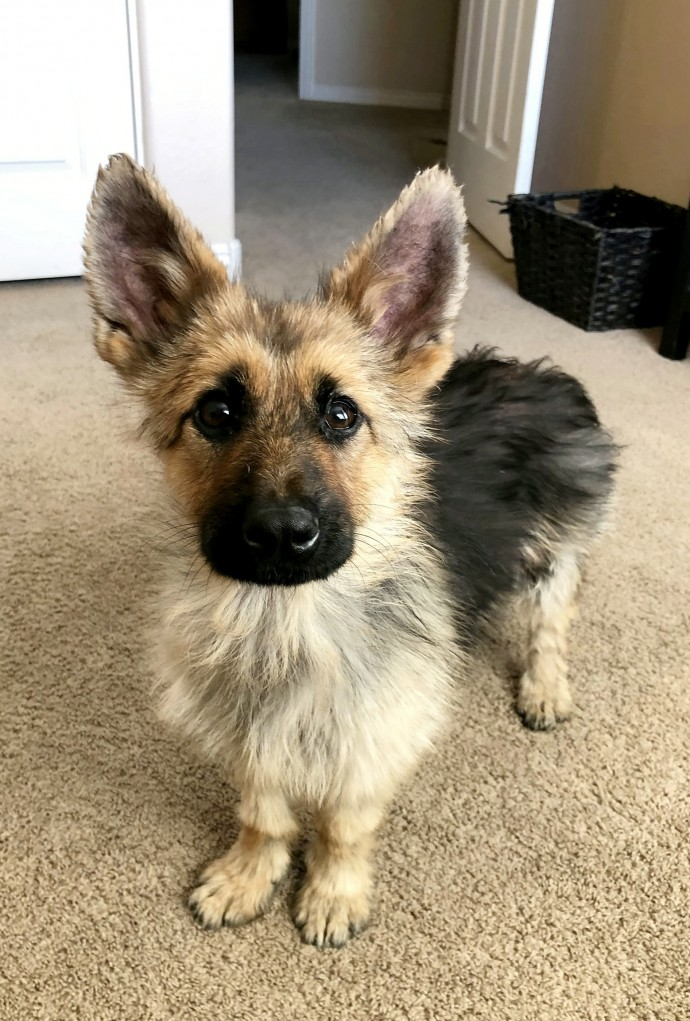German Shepherds are renowned for their intelligence, loyalty, and versatility. While typically medium to large-sized dogs, there's growing interest in smaller variations of this beloved breed. This comprehensive guide delves into the fascinating world of small German Shepherds, exploring their unique characteristics, care requirements, and the various factors that contribute to their compact size.
The Appeal of Small German Shepherds
German Shepherds are known for their striking appearance, intelligence, and loyalty. However, their large size can be a deterrent for some potential owners, especially those living in smaller spaces or with limited physical capabilities. This has led to increased interest in smaller versions of the breed, often referred to as "small German Shepherds" or "miniature German Shepherds."
It's important to note that there is no officially recognized "miniature" or "small" German Shepherd breed. What people often refer to as small German Shepherds are typically:
- Undersized purebred German Shepherds
- Mixed breeds with German Shepherd ancestry
- German Shepherds with dwarfism
Understanding German Shepherd Size and Head Shape
Before we delve into smaller variations, let's establish the standard size and head shape of a typical German Shepherd:
Standard German Shepherd Size
| Gender | Height (at shoulder) | Weight |
|---|---|---|
| Male | 24-26 inches | 65-90 lbs |
| Female | 22-24 inches | 50-70 lbs |
German Shepherd Head Shape
The German Shepherd head is characterized by:
- A domed forehead
- A long, square-cut muzzle
- Strong jaws
- A black nose
- Medium-sized, brown eyes
- Large, erect ears
The German Shepherd dog skull is proportionate to their body size, contributing to their noble and intelligent expression.
Factors Contributing to Small German Shepherds
Several factors can result in a German Shepherd being smaller than the breed standard:
1. Genetics
Some German Shepherds may naturally be smaller due to their genetic makeup. If both parents are on the smaller side of the breed standard, their offspring are likely to be smaller as well.
2. Nutrition and Health
Poor nutrition during puppyhood or health issues can stunt a German Shepherd's growth, resulting in a smaller adult size.
3. Mixed Breeding
Some breeders intentionally mix German Shepherds with smaller breeds to create a more compact dog with GSD characteristics.
4. Dwarfism
In rare cases, German Shepherds may have pituitary dwarfism, a genetic condition that results in significantly smaller size and other health issues.
Types of Small German Shepherds

1. Miniature German Shepherd
This is not an official breed but rather a term used to describe smaller-than-average German Shepherds or GSD mixes. These dogs typically retain many German Shepherd characteristics but in a more compact package.

2. Smaller German Shepherd Mixes
Some popular mixes that result in a smaller GSD-like dog include:
- Corman Shepherd (German Shepherd + Corgi)
- Shollie (German Shepherd + Border Collie)
- Gerberian Shepsky (German Shepherd + Siberian Husky)

3. German Shepherds with Dwarfism
While not a desirable trait due to associated health issues, some German Shepherds with pituitary dwarfism may be significantly smaller than the breed standard.
Characteristics of Small German Shepherds
Small German Shepherds, whether purebred or mixed, often retain many of the beloved traits of standard-sized GSDs:
- Intelligence
- Loyalty
- Trainability
- Protective instincts
- Energy and athleticism
However, their smaller size can offer some advantages:
- Easier to manage in smaller living spaces
- Lower food and medication costs
- Potentially longer lifespan (in healthy individuals)
Caring for a Small German Shepherd
Exercise Requirements
Despite their smaller size, these dogs typically retain the high energy levels of standard German Shepherds. They require:
- Daily walks (at least 60 minutes)
- Mental stimulation through training and puzzle toys
- Play sessions
Nutrition
Proper nutrition is crucial for maintaining the health of small German Shepherds:
- High-quality dog food appropriate for their size and energy level
- Portion control to prevent obesity
- Consult with a veterinarian for specific dietary needs
Grooming
Small German Shepherds often have the same double coat as their larger counterparts:
- Regular brushing (2-3 times per week)
- Occasional baths
- Nail trimming and dental care
Training
Early socialization and consistent training are essential:
- Positive reinforcement methods
- Mental stimulation through obedience and trick training
- Socialization with people and other animals
Health Considerations for Small German Shepherds
While smaller size can alleviate some health issues common in larger dogs (like hip dysplasia), small German Shepherds may still be prone to certain conditions:
- Joint issues (especially in mixes with dwarf breeds)
- Digestive problems
- Allergies
- Eye problems
Regular veterinary check-ups and a healthy lifestyle are crucial for maintaining their well-being.
The German Shepherd Head: A Closer Look
The German Shepherd head shape is one of the breed's most distinctive features, even in smaller variations:
GSD Head Characteristics
- Skull: Slightly domed, tapering gradually to the muzzle
- Muzzle: Long and strong, with a black nose
- Ears: Large, pointed, and erect
- Eyes: Medium-sized, almond-shaped, and dark in color
- Expression: Alert and intelligent
Even in smaller German Shepherds or mixes, breeders often aim to maintain these characteristic head features, as they contribute significantly to the breed's iconic look.
Choosing a Small German Shepherd
If you're considering adding a small German Shepherd to your family, keep these factors in mind:
- Source: Research reputable breeders or consider adoption from shelters
- Health: Ask for health clearances and genetic testing results
- Temperament: Meet the dog and its parents (if possible) to assess personality
- Care requirements: Ensure you can meet the dog's exercise, grooming, and training needs
- Size expectations: Understand that "small" is relative and adult size can be unpredictable in mixed breeds
Conclusion: Is a Small German Shepherd Right for You?
Small German Shepherds, whether undersized purebreds or carefully bred mixes, can offer the beloved traits of the German Shepherd breed in a more compact package. They retain the intelligence, loyalty, and versatility that make German Shepherds so popular, while potentially being more manageable for some owners.
However, it's crucial to remember that these dogs still require significant exercise, mental stimulation, and care. They are not "low-maintenance" alternatives to standard German Shepherds. Potential owners should carefully consider their lifestyle and capabilities before choosing a small German Shepherd.
Whether you opt for a smaller purebred GSD, a mixed breed, or a standard-sized German Shepherd, proper care, training, and love will result in a loyal and devoted companion. The key is to choose the dog that best fits your lifestyle and can provide a loving, lifelong home.
